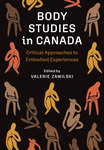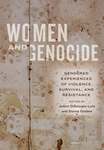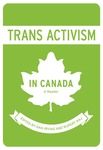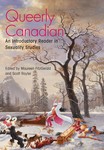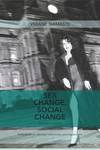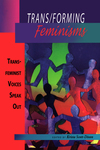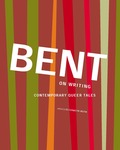We don’t actively support Internet Explorer
It appears that you are using Internet Explorer, which has been discontinued by Microsoft. Support has ended for versions older than 11, and as a result you may face security issues and other problems when using it.
We recommend upgrading to a newer browser such as Firefox, Google Chrome, or Edge for a much better experience across the web.
While this site may work with Explorer, we are not testing and verifying it, so you may run into some trouble or strange looking things.
Overview
What ideas are overlooked in contemporary feminist politics? How do particular issues become part of the feminist agenda? Why do we need to think about how feminists imagine and actualize their political objectives?This book explores these questions through the notion of oversight—a concept used both to consider what has been overlooked and to examine how particular objects of feminist politics become visible in the first place. Through chapters that focus on realities lived by trans women, Viviane Namaste explores diverse case studies and facets of political life: women’s labour, the archiving of everyday life, the history of HIV, urban development and displacement, bisexualities, and the culture of feminist activists themselves.Oversight suggests that feminists need to engage in careful, deep reflection on how feminist knowledge comes into being. This book will be of interest to scholars in women’s and gender studies, community development, sociology, social work, geography, history, and sexuality studies. Its accessible tone, pedagogical questions, and suggested readings make it well suited to classroom use. Its exploration of activist culture will be of particular interest to advocates of social justice both inside and outside of the university.All royalties from the sale of this book will be donated to the Emergency Relief Fund of PASAN—Prisoners’ HIV/AIDS Support Action Network. This fund helps support individuals who are newly released from jail and who need financial resources for housing, food, medications, and the replacement of identity documents.
Table of Contents
ACKNOWLEDGEMENTSINTRODUCTIONOversight: How and Why Feminist Thinking MattersFurther ReadingNotesReferencesCHAPTER ONEMontréal by Night: Critical Thoughts on Radical Health ResearchIntroductionMontréal as a City of Leisure, Sex, and SexualityHistories of Public Health and Infectious Disease in MontréalConclusionQuestions for Discussion and ReflectionFurther ReadingNotesReferencesCHAPTER TWOLabour, the State, and Global Capitalism: Challenges for Archiving Trans LivesCabaretsClinical HealthConclusionQuestions for Discussion and ReflectionFurther ReadingNotesReferencesCHAPTER THREEReflections on a Changing City: Heritage, the Transformation of Montréal's Downtown Core, and the Economic Dimensions of OversightThe Quartier des spectacles and the Revitalisation of Saint-Laurent BoulevardMethodological Issues in Our Reflections on Québec HeritageData and Evidence Presented by the PromotersThe General Orientations of the Quartier des spectaclesSummary of the SituationRecommendationsEpilogueQuestions for Discussion and ReflectionFurther ReadingReferencesCHAPTER FOURThe Impact of HIV in Parisian Trans Communities, 1980–2000: The Relevance of History for Critical Epistemologies on HIV/AIDS 77 Histories of HIV/AIDSOverview of the Research StudyMain Study FindingsConclusion: The Contributions of History in the Analysis of HIV/AIDSQuestions for Discussion and Reflection Further ReadingNotesReferencesCHAPTER FIVECritiquing the AIDS Bureaucracy: An Open Letter to the Canadian AIDS Society (CAS), with Nora Butler Burke and Zack Marshall History of This Issue at CASMeetings and Communications with CASPrinciples in Practice?Questions We Still Ask OurselvesWhy This Letter? What Can You Do?EpilogueQuestions for Discussion and ReflectionFurther ReadingReferencesCHAPTER SIXBut What About the B? Elision of Bisexualities in Scholarship and Activisms on SexualityQuestions for Discussion and ReflectionFurther ReadingReferencesCHAPTER SEVENReflections on Pronouns, Activists, and FuneralsIntroductionThe Limits of Confession: Constituting the Settler SubjectPreferred Pronouns: Activists Speak and Centre ThemselvesBeyond Binary Gender: Marginalizing Transsexuals?Enter "Trans People," Exit Trans WomenPrivilege: But I Want it!Reflections on "Safe Space"On Funerals ConclusionQuestions for Discussion and ReflectionFurther ReadingNotesReferencesCONCLUSIONReferences


